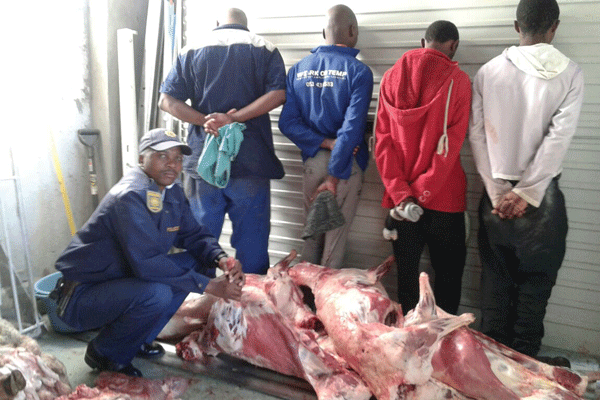
THEFT is quite possibly the most common crime because it affects everyone. Losing any property at all to theft is one of the most painful and traumatic life events. The threat of theft is an ever present notion in daily living, thus, one of the biggest priorities in life is to install protective measures or insure against loss from theft. Last week we discussed the theft of intellectual property and today we discuss the theft of tangible property such as money or other physical objects.
Miriam Tose Majome

Theft as defined in Section 113 of the Criminal Code is when a person takes property knowing that another person is entitled to it or when they know that there is a possibility that another person is entitled to it. The property is taken with the intention of permanently depriving the other person.
Embezzling trust funds Theft also occurs when a person fails to account for trust money by either misusing it or converting it to their own use. Trust funds are monies held on behalf of other people. Lawyers, estate agents and executors of deceased estates routinely hold and control money belonging to other people from sales of houses and other assets. Trust funds are not part of business funds and are never to be confused or tampered with. Mishandling trust funds is the bane of the legal profession. In 2015 approximately 35 lawyers were de-registered with almost half being for mishandling and failing to account properly for trust funds. Estate agents, who mishandle trust funds, are de-registered by the Estate Agents Council.
Stock theft This is the theft of farm animals or domesticated game. It is not confined to the theft of cattle and also includes the theft of slaughtered livestock. Custodial sentences for stock theft are routinely very stiff with a minimum of nine years which may exceed 25 years if the theft includes cattle and horses. The seriousness of sentencing for stock theft is a reflection of the commercial value placed on livestock, particularly cattle and horses. Horses are an especially prized possession, particularly thoroughbred horses used for racing and show jumping and other such ultra- posh equestrian pursuits of rich people. Pedigreed cattle are also very expensive and rare. Stiff sentences for livestock theft are believed to be a remnant of colonial times, where livestock was valued more highly than the natives, so the sentences had to be unquestionably deterrent.
Making off without payment This type of theft is very common in the service industry. Revellers and hotel guests routinely sneak away without paying for services. We won’t mention the towels, sheets, cutlery and vases that are stuffed into handbags and travel cases by some very distinguished looking ladies and gentlemen. A person who has benefited from a service or has consumed goods knowing that payment is required on the spot may intentionally run away without paying. Waiters and room hands have seen it all.
Possession of stolen property If a person is found in possession of property that has recently been stolen, the assumption will be that the person committed the theft. They could also be liable for receiving property knowing that it was stolen. It is a crime to receive stolen property or property that is reasonably suspected to have been stolen. If the person cannot give a reasonable explanation for his or her possession they could be found guilty of the offence. This is common in the booming trade of electronic devices such as mobile phones, tablets, televisions and car radios. In Harare’s underworld, which is very much in the public glare, people buy and sell the latest gadgets openly on street corners and car boots. It will not be a good defence to claim that one did not know the latest iPhone they bought at Ximex Mall could most possibly have been stolen. It is common cause that Apple Incorporated does not licence dealers named Bla Gidza to distribute iPhones and accessories from their bulky pockets on street corners. If the person cannot explain his or her possession of any suspected loot, they will be found guilty of possessing or dealing in stolen property. Even with the market distortions caused by the government’s free for all empowerment and indigenisation drive it is still a legal requirement to obtain the necessary permits and licences to trade in specific items.
Robbery This is theft that includes an element of violence. The thief intentionally uses violence or threatens to use violence immediately before or at the time of theft. The violence can also occur immediately after the crime to prevent the person from regaining control of the stolen property. Aggravating circumstances are when the robber possesses a firearm or a dangerous weapon, or inflicts or threatens to inflict serious bodily injury upon the victim. The victim could even be killed during the robbery. Robbery is a very serious crime and can lead to life imprisonment depending on the circumstances and outcome.
- Chamisa under fire over US$120K donation
- Mavhunga puts DeMbare into Chibuku quarterfinals
- Pension funds bet on Cabora Bassa oilfields
- Councils defy govt fire tender directive
Keep Reading
Extortion This is when violence is threatened in the future for failure to perform demanded. Threatening to use violence at a future time is not robbery as is taking and controlling property by means of threat of violence to be committed in the future. It is robbery when violence and force is immediately instituted if the property is not surrendered immediately. Otherwise it is extortion or blackmail.
Restitution The court may order the thief to restore the victim’s property and this may help to reduce the sentence. An equivalent amount to what was stolen may be paid from the money or property recovered from the thief or from other sources.











